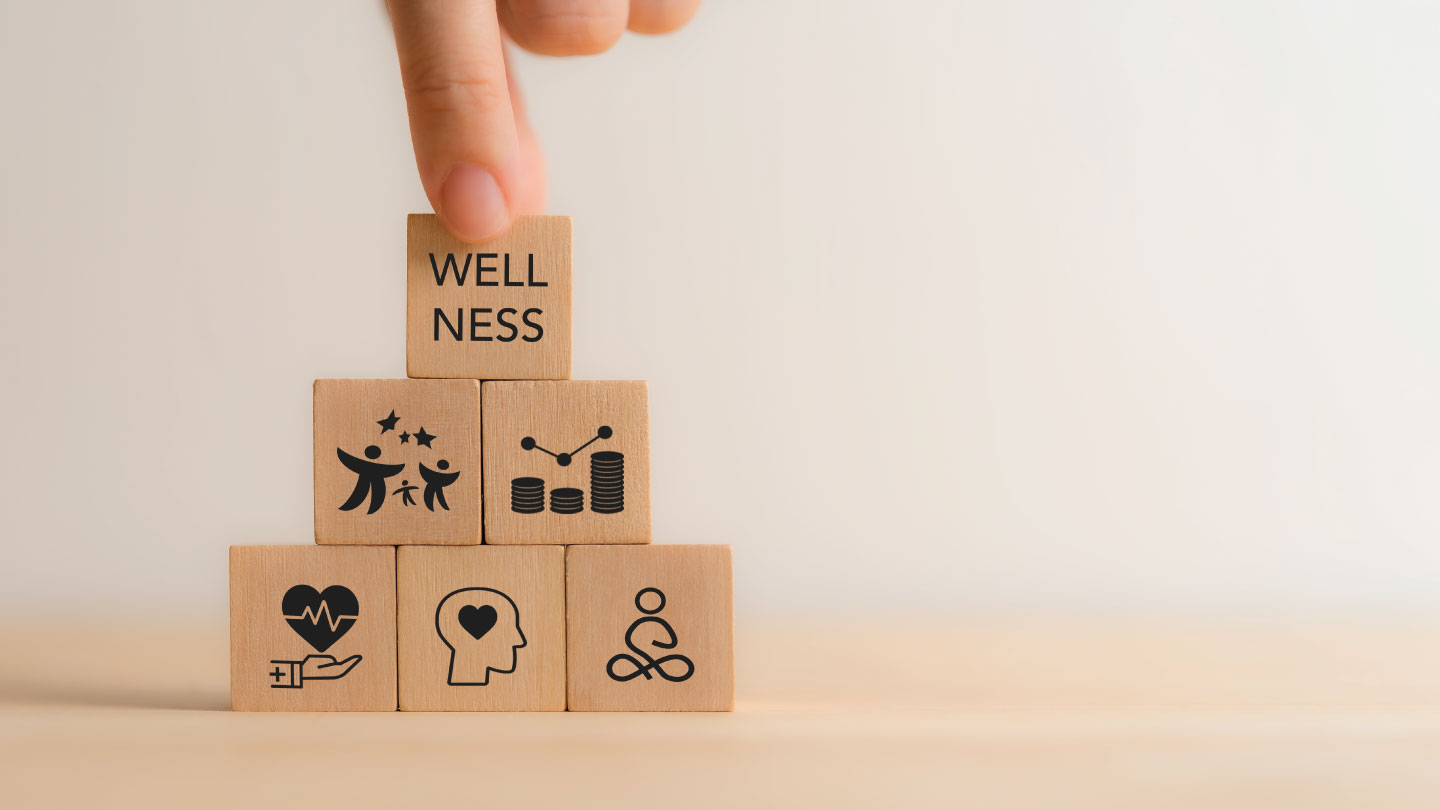Corporate Wellness
10 Ways to Work Smarter
Boosting productivity isn’t just about working harder—it's about working smarter. Learn about practical strategies for streamlining workplace tasks, from prioritising key projects to leveraging tech tools.

According to a 2024 global study by HR think tank UKG Workforce Institute, 78 per cent of Indians experience burnout in the workplace.
Ever wonder if there's a better way to get things done? Whether at work or in life, we all aim to achieve more in less time. Imagine tackling a task that used to take up half your day in just a couple of hours. With the right focus and fewer distractions, it's possible.
You know you’re putting in the effort—your body feels it, and your mind is certainly keeping score. Maybe you’ve started questioning the number of projects piling up or the time spent commuting. Sure, you’re getting things done, but it’s draining your energy.
You’re not afraid of hard work. But let’s be real—you can’t keep pushing to work harder without running out of steam. It’s time to start thinking about how to work smarter, not just harder.
Mindfulness 101:Bring calm into your day with these daily tips. Sign up here.
10 Ways to Work Smarter
1. Avoid juggling multiple tasks: Multitasking might make you feel productive, but it actually limits your focus. For instance, you’re working on a report but keep pausing to answer emails. Each time you switch, you lose momentum on the report, making it harder to finish effectively. Instead, take a moment to slow down—try a few deep breaths and consciously decide to tackle one task at a time. Focusing on one task first will actually help you finish both tasks faster and with better results.
2. Tackle tasks in batches: Grouping similar tasks together keeps your momentum strong and helps you stay focused on one thing at a time. It’s about working smarter by organising your day to avoid constant switching between different activities. For instance, rather than responding to each email as it arrives (reactive), allocate specific time slots throughout the day to check and reply to emails (proactive). This lets you power through similar tasks more efficiently, keeping distractions at bay and productivity high.
Related story: 7 Habits That Are Leaving You More Exhausted That Your Work
3. Know when to call it a day: You probably know the signs—your mind starts drifting, you keep rereading the same line, or you’re spending 30 minutes drafting a simple email. When this happens, it’s your brain's way of saying it’s time to shut down. Even if you’re tempted to push through and burn the midnight oil, stepping away and tackling the project with a fresh perspective tomorrow will help you get more done in the long run.
4. Block your calendar: Setting aside time in your day for focused work helps you stay organised and minimises distractions. Be strategic about how you schedule your time and anticipate potential interruptions. For example, if you’re most productive in the mornings but have a daily meeting that disrupts your flow, consider rescheduling it or blocking that time on your calendar for uninterrupted work.
Related story: How to Identify And Deal With Signs of Burnout
5. Turn on 'Do Not Disturb' mode: Avoid getting sidetracked by social media alerts when you're in work mode. Those constant notifications can be distracting and time-consuming. If you're eagerly awaiting an important response, it's hard not to keep checking your phone. Boost your productivity by turning off notifications for non-work apps. Consider switching off your phone's notifications altogether to minimise interruptions, or use the "Downtime" feature to block access to distracting apps during work hours. This simple adjustment can significantly improve your productivity.
6. Initiate work as per your energy levels: When you push through fatigue, your performance suffers, and frustration mounts. Instead, align your work with your natural energy levels. If you're most alert in the morning, focus on high-priority tasks that require intense focus. Save less demanding work for when your energy wanes. By leveraging your strengths, you'll achieve more and stay motivated instead of exhausted.
Related story: 5 Stages of Burnout--An Expert's Huide to Cope
7. Enjoy the outdoors: When work starts to feel stagnant, a change of scenery can make all the difference. Being cooped up indoors for too long can leave you feeling stuck and uninspired. Stepping outside for a bit of exercise not only helps relieve stress but also calms your mind and brings back your focus. Take a walk to the nearest park, soak in the fresh air, and stretch your legs. Even a quick 15-minute stroll can boost your mood and recharge your mental batteries, leaving you ready to tackle the rest of your day with renewed energy.
8. Don’t wait for motivation: A smart way to boost productivity is to complete the task. The hardest part is usually just getting started, but once you do, your brain's natural drive to finish the job will kick in. Next time you feel like procrastinating, remember that taking the first step is often all you need.
Related story: 8 Ways to Bring Mindfulness in Your Work Day
9. Declutter your office desk and system: A clean and organised space can boost your mood, lower stress, and make it easier to stay on top of your tasks. A 2012 research by UCLA’s Center on Everyday Lives of Families (CELF) found a direct connection between clutter and higher levels of the stress hormone cortisol. In other words, a messy workspace can lead to a messy mind. Start by clearing out any paper, trash, or unnecessary items in your office. Digital clutter counts too—organise documents into folders, delete unneeded files, and uninstall nonessential software. Don’t forget to tidy up your inbox by archiving important emails, so you can focus on the most critical messages without distraction.
10. Learn to say "No" sometimes: Are you the go-to person who always says "yes" when someone asks for help? While it feels good to lend a hand, constantly agreeing to every request can push your own priorities to the back burner. Saying "no" or even "not right now" helps you protect your time and energy. If you’re up against a tight deadline, it’s okay to put your work first. This doesn’t mean you should never support your coworkers, but you need to recognise when your tasks take precedence.
Related story: How to Say No Without Feeling Guilty
Why is working smarter a good decision?
If you want to boost your productivity without draining your time and energy, then working smarter, not harder, is the key. It's all about setting clear priorities, automating repetitive tasks, and delegating less important duties. By focusing on what truly matters, you can make a real impact without getting bogged down by the small stuff.
If you're in marketing and you have the power to work smarter. That might involve using automation tools to schedule your social media posts or email campaigns instead of doing it all manually. And if you're a freelancer, hiring a virtual assistant to take care of your administrative tasks, giving you the freedom to zero in on projects.
Working smarter isn’t just a strategy—it’s a lifestyle upgrade that lets you enjoy the benefits of the workplace and personal life.
Here are some positive aspects of working smarter:
- It gives you more time to rest: When you work smart, you also rest smart. This means you'll be able to indulge in various forms of rest, such as meditation, mindfulness exercises, or even sneaking in a rejuvenating power nap. These moments of rest are not just indulgences – they can enhance memory, improve mood, and reignite creativity.
- Helps you bounce back from burnout: Burnout can deplete your energy and affect your mental well-being. However, working smarter can help you manage your energy more efficiently, making it easier to overcome burnout - or even avoid it altogether. It also ensures that you stay aligned with your values, enabling you to focus on what truly matters to you, rather than just going through the motions.
- Improves your work-life balance: Rather than working long hours and letting work consume your life, working smarter allows you to make time for your personal life as well. It's a revolutionary approach to time management that enables you to meet deadlines without constantly feeling rushed, giving you more time to enjoy the things you are passionate about.
- Boosts your motivation: Once you start working smarter, you’ll notice the difference almost instantly. The increase in productivity and the sense of accomplishment will give you a major motivation boost. Seeing your progress will inspire you to set new goals and keep the momentum going.
Related story: Declutter Youyr Life, Declutter Your Mind
Working smarter, not harder, is all about adopting strategies that help you make the most of your time and energy. By setting boundaries, organising your workspace, and taking advantage of productivity techniques, you can boost your efficiency without burning out. Small changes, like turning off notifications or scheduling tasks based on your energy levels, can have a big impact on your day-to-day productivity. With these tips in mind, you'll find yourself achieving more while feeling less stressed, more motivated, and ready to take on whatever comes your way.
Mindfulness 101:Bring calm into your day with these daily tips. Sign up here.
EXPLORE MORE
Early health signals are warnings, not noise and they shape workforce outcomes. We must recognise these signals as strategic indicators of workforce well-being and long-term productivity.
Hybrid work promised flexibility and balance, but for many, it’s silently eroding the boundary between work and life. Burnout today isn’t just about doing more; it’s about being always on.
You’ve worked through the night, and the sun’s already up. Here’s a realistic plan to reclaim your energy, sleep better, and keep your health intact.
Tired of endless, aimless meetings? These five habits turn dull sessions into focused, energising discussions.




.jpg)


